Mother Of Slain Protester Stands Firm In Face Of 13-Year Sentence

The mother of Mohammad Javad Zahedi, a victim of last year's protests, declared "I have stood for my Mohammad until the end," after being sentenced to 13 years in prison.

The mother of Mohammad Javad Zahedi, a victim of last year's protests, declared "I have stood for my Mohammad until the end," after being sentenced to 13 years in prison.
Zahedi, 20, lost his life on September 21, 2022, during the nationwide uprising when forces of the Islamic Republic opened fire in Sari, located in the north of Iran.
His mother Mahsa Yazdani had previously been sentenced to 13 years in prison by the Revolutionary Court in Sari. The charges against her included "insulting sanctities, inciting people to disrupt national security, insulting the leadership, and engaging in propaganda against the system."
The appeals court in Mazandaran Province affirmed the verdict on Monday, indicating that the most severe part of the punishment, a five-year imprisonment term, will be enforced.
Yazdani was arrested by security forces in Sari on August 22 and was released from prison on October 6 after posting bail.
During the uprising, well over 500 protesters lost their lives as security forces brutally suppressed the masses, and thousands were rounded up and imprisoned.
Amnesty International recently disclosed a document revealing that the commander overseeing suppression in Mazandaran province had issued orders for "ruthless and deadly force" against protesters in all major and minor cities of the province.
The families of those who lost their lives in the uprising have faced numerous pressures since the beginning of the Woman, Life, Freedom movement in Iran from travel bans to jail terms.
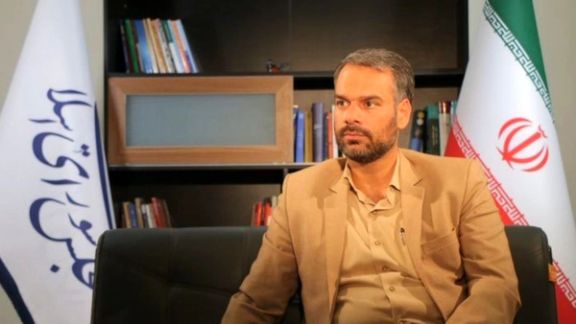
An Iranian MP has estimated that the annual financial turnover of Virtual Private Networks (VPNs) in Iran is approximately $900 million amid widespread internet bans.
The revelation stems from a survey conducted by MP Jalal Rashidi Kouchi who calculated that if the minimum monthly price of a VPN in Iran is $2, citizens would be compelled to spend around $480 million annually on these tools to circumvent regime bans on the likes of Instagram and Whatsapp.
He also estimated that the shutdowns on popular apps used for social networking and e-commerce cost the public an additional $400 million.
In September, Yekta Net Advertising Company published a report estimating the market volume of circumvention tools in 2022 to be between $500 million to $600 million. According to the report, 80% of Iranians use VPNs to access social networks, while the Islamic Republic currently restricts access to major international social networks and messaging platforms.
Estimations of VPN sales in Iran in recent years have been approximations due to a lack of transparent data. The estimates typically focus on the direct costs citizens pay to bypass censorship, overlooking government expenses in equipping and maintaining the online censorship system.
Despite the controversies, officials from the Ministry of Communications and Information Technology, including Minister Isa Zarepour, have consistently rejected published statistics on the matter, avoiding responsibility.
According to Freedom House, Iran was the Middle East's worst country for internet freedom in 2023, its rating worsening in the wake of the Women, Life, Freedom uprising.
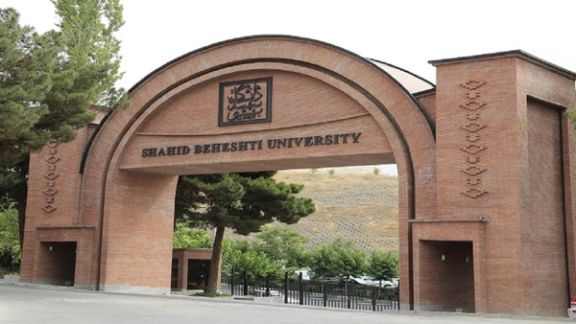
University security guards targeted women at Shahid Beheshti University in Tehran as crackdowns on hijab laws worsen.
Several students in the psychology faculty were first targeted before the security team reached humanities and literature students. ID cards were recorded as the regime does all it can to threaten and intimidate those not complying with compulsory hijab laws.
Other measures have been imposed on students including forcing them to agree to wearing the hijab in order to choose courses, with some students even exiled to other cities.
It comes amidst heightened crackdowns across the country where students have been a pivotal part of the Women, Life, Freedom movement challenging the Islamic Republic. Over 140 universities across Iran witnessed protests following the death in morality police custody of Mahsa Amini. Since that time, hundreds of students have been arrested and banned from studies as a consequence of support for anti-regime protests.
In April, Iran’s Student Union Council claimed that more than 430 students had been suspended or expelled following the recent protests across the country.At the time, US-based Human Rights Activists News Agency (HRANA) said 637 students from 144 universities had been arrested since mid-September. Other sources have put the number at well over 700.
The regime continues to make universities a focal point. On Monday, Mohammad Moghimi, president of the University of Tehran, admitted an increased presence of hijab enforcers on the capital's campus. He mentioned that women, educated in seminaries, have formed monitoring groups dedicated to overseeing students' compliance with hijab regulations.
Student councils further disclosed that over the past week, more than 50 students were summoned to disciplinary committees by the hijab enforcement teams. The penalties ranged from verbal reprimands to suspension from their studies.
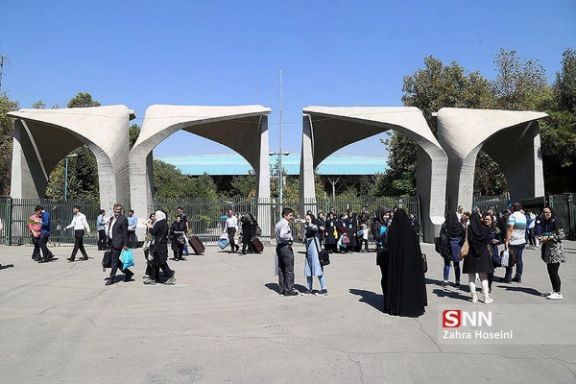
The University of Tehran's President Mohammad Moghimi has officially confirmed the increased presence of hijab enforcers at the capital's campus.
He said women, "with seminary education," organized into "monitoring groups for students' hijab" are now on the university campus.
Moghimi disclosed the development during a session of the Council for Promotion of Virtue and Prevention of Vice at the university.
He explained that the groups, comprised of women focused on “improving compliance with behavioral codes, are tasked with monitoring and enhancing the adherence to dress codes in alignment with religious rules, university regulations, and standards across all campuses of the University of Tehran.”
Critics argue that the presence of such groups raises questions about individual freedoms and privacy on university campuses, which have been hotbeds for anti-regime sentiment since last year's Women, Life, Freedom movement saw uprisings swell across the country.
The issues first came to light earlier this month when student councils in the country reported the presence of "hijab enforcement" forces in the University of Tehran's campuses, detailing instances of harassment and intimidation by the forces, who patrol the university campus under the pretext of enforcing dress codes.
Student councils also revealed that within a week, more than 50 students were summoned to disciplinary committees by the hijab enforcement forces. The majority of the students faced a range of penalties, from verbal reprimands to suspension from their studies as has been since since the uprising began last year and hijab crackdowns toughen.
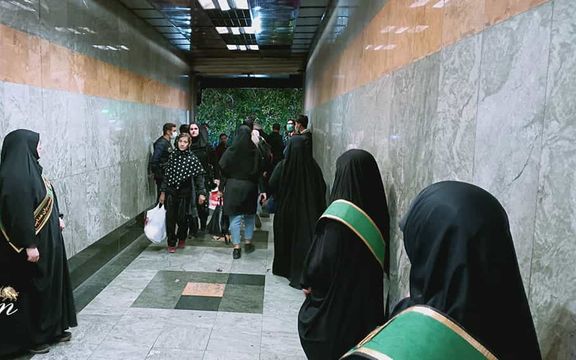
Political activist Abbas Abdi has slammed the recent deployment of police and hijab patrols in Tehran's metro stations, aiming to enforce mandatory hijab regulations.
In a Monday editorial for Etemad newspaper, the reputable reformist commentator and journalist expressed deep concern over the situation, asserting that “the increased police presence in the metro only serves to heighten public discontent.”
In recent months the regime has hardened its stance over the hijab as the strength of rebellion fails to weaken.
Abdi emphasized that the onus is on the government to align itself with the expectations of the people and work towards a more harmonious coexistence. Images circulating on social media depict numerous hijab officers creating congestion in a subway passageway at Tehran's Enghelab station, now colloquially referred to as the "horror tunnel" for women.
Reports also highlight the use of cameras by the Security Police (FARAJA) to identify women without headscarves. Abdi reposted an image of the hijab enforcers on the X social network on Friday, cautioning that the regime would likely face regrettable consequences for its decisions.
The stringent enforcement of hijab rules gained momentum following the tragic death of Iranian-Kurdish woman Mahsa Amini in hijab police custody in September 2022, igniting the Women, Life, Freedom protests. In May, Tehran Mayor Alireza Zakani announced the implementation of a uniformed security unit to prevent women from accessing metro ticket gates.
Reports in August suggested that Tehran municipality was planning to deploy 400 personnel to enforce hijab laws at subway stations in the capital. The heightened presence of hijab police also led to the death of Armita Geravand, 16, who lost her life in October following an encounter with Tehran's hijab police in the subway, in echoes of the Mahsa Amini tragedy one year earlier.
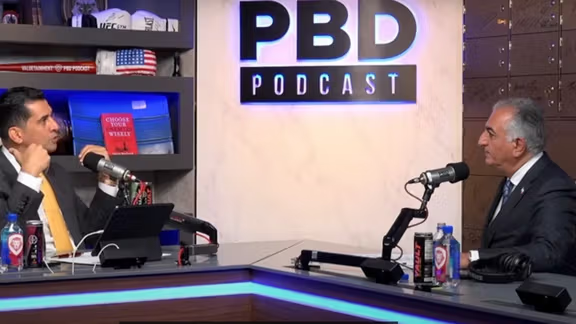
Iran’s exiled prince Reza Pahlavi has revealed that his father Mohammad-Reza planned to pass the throne to him just before the monarchy fell in the 1979 revolution.
In a three-hour interview with entrepreneur and best-selling author Patrick Bet-David -- himself of Iranian Assyrian and Armenian origin -- Pahlavi said when his father, the last shah of Iran, knew about his cancer he wanted his son to succeed to the throne but his aspiration was eclipsed by the emergence of a leftist-religious revolution that altered the course of Iran’s history.
The former crown prince, who has long campaigned for a secular and democratic Iran rather than a restoration of the monarchy, has a large fan base in Iran and abroad. During the Women, Life, Freedom protests – ignited by the death in custody of 22-year-old Mahsa Amini in September 2022 -- Pahlavi became a leading opposition figure, but he has critics among other dissident activists who do not see him as the leader of the opposition.
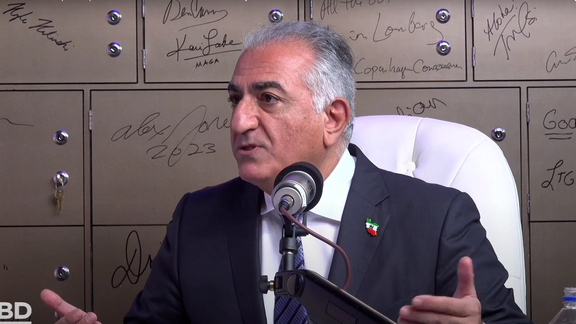
Despite at least four decades of Islamic Republic propaganda to indoctrinate Iranian children and youth against the Pahlavis, Iran’s last dynasty is still revered among Iranians, who chant slogans to honor the two Pahlavi kings who reigned in the 20th century during gatherings and rallies. Reza Pahlavi enjoys support thanks to his hereditary gift, among middle aged and older Iranians, but also he is popular among the Mahsa Generation Z youth, who see him touring the world to make the voices of Iranians heard and talking about transitioning from the Islamic Republic.
Asked about if he would consider running for a position in Iran after the collapse of the Islamic Republic regime, Pahlavi emphasized that the Iranian people are the ones who should decide on the future form of the government. “In order for people to be empowered, they have to have more than hope. They have to actually believe that it can be done. I believe that it can be done.”
He argued that most Iranians share Western values and the Islamic Republic is the obstacle on Iran’s path to connect to the global community. “We (Iranians) are your allies in principle” as a democracy seeking country. He asserted, “how many democracies do you know that go to war against one another?” He argued that Iran after the Islamic Republic is a country that the world can count on as a flagbearer of peace rather than an instigator of conflicts.
Questioned by Bet-David about how he sees the colossal challenge of overthrowing clerical rule, Pahlavi said, “There was a time I didn’t think that I would possibly see the fall of the Berlin Wall in my lifetime.”
The interview was the first time Pahlavi defended some of the policies of his father, tacitly trying to vindicate the last monarch and his notorious intelligence agency SAVAK. The secret police, domestic security and intelligence service, operated from 1957 until prime minister Shapour Bakhtiar ordered its dissolution during the climax of the 1979 Iranian Revolution. Pahlavi argued that many of the prisoners held by SAVAK were among thousands of Soviet KGB agents active in Iran. He charged that Iran’s current ruler Ali Khamenei was among such prisoners who had undergone training under KGB in Palestinian camp in Lebanon.
Pahlavi also talked about how the US government at the time helped the Islamic revolutionaries topple his father while Bet-David showed a video of a debate in which former US President Ronald Reagan criticized Jimmy Carter for undercutting Mohammad-Reza Shah Pahlavi. The prince also talked about his meeting with Carter and his National Security Advisor Zbigniew Brzezinski in 1978 at the White House. According to Pahlavi, the US politicians believed the establishment of an Islamic government in Tehran can stop the spread of Communism in the region.
Asked about why Iranians revolted against his father, he said the country was progressing toward a modern era “too fast,” explaining that the advances were rejected by the clergy who were conservative about any change in the social structure of Iran. “All of a sudden you find a country, where the income per capita jumps to the level it was, and people’s purchasing power made them capable of having so much more... and then you have the resistance coming from the clergy who never liked where my father was taking the country.”
Now Iranians have the lowest purchasing power unprecedented in history while women and minorities are persecuted,and Iran is far from the goals of Iran’s monarchs who believed the country would take its place among the top five countries of the world.